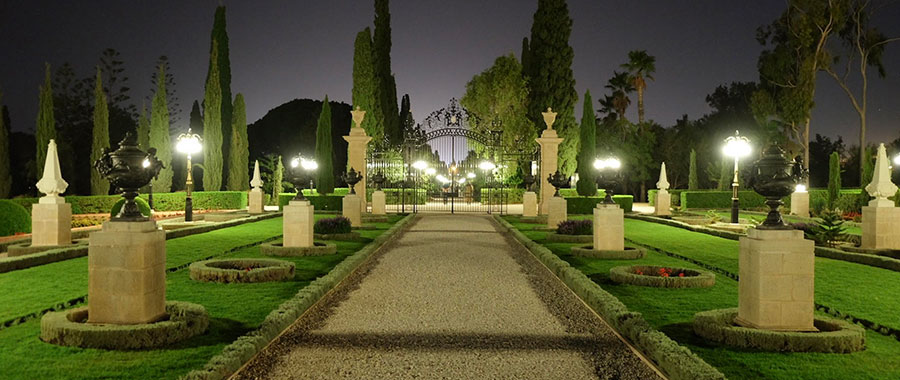The Bahá’í Faith encapsulates a rich tapestry of spiritual teachings, which derive their profundity from the experiences and revelations of Bahá’u’lláh, its founder. One of the most poignant narratives within his life is that of his imprisonment in the Black Pit (Síyáh-Chál) of Tehran. This harrowing chapter not only illustrates the trials faced by Bahá’u’lláh but also serves as a crucible for some of the most significant revelations of the Faith. Within the darkness of this oppressive confinement, a radiant light of divine wisdom emerged, reshaping the spiritual landscape of humanity.
The Black Pit itself, a place of despair and suffering, takes on an intriguing metaphorical significance. It symbolizes the depths of human tribulation and the stark realities of oppression. However, it is within this very pit that Bahá’u’lláh experiences an extraordinary revelation. This duality—a place of darkness birthing light—mirrors the core tenet of the Bahá’í Faith: that through adversity, a deeper understanding of divine purpose can be realized. The power of this narrative lies not in the bleakness of the experience but rather in the transformative realization that emerges from it.
In the isolation of the Black Pit, Bahá’u’lláh received profound insights that would shape his teachings. He proclaimed the oneness of humanity—an idea that reverberates throughout the Bahá’í scriptures. This principle imparts a universal call for unity, recognition of our collective identity as members of a single family. The teachings advocate that regardless of race, religion, or nationality, all human beings are fundamentally connected. This sense of interconnectedness is pivotal for fostering global peace and harmony.
Moreover, the notion of divine revelation is vividly illustrated during this period. Bahá’u’lláh conveyed that divine knowledge is progressive and cumulative. This concept suggests that every religious tradition serves a vital role in the unfolding narrative of spiritual development. The Black Pit thus becomes a metaphor for the ignorance that can shroud humanity’s understanding of divinity, with Bahá’u’lláh’s revelations illuminating the path to enlightenment. The call for spiritual renewal resonates distinctly, urging individuals to transcend the shackles of prejudice and embrace a more inclusive worldview.
An essential aspect of Bahá’í teachings, emerging from the shadows of the Black Pit, is the emphasis on justice. Within Bahá’u’lláh’s writings, justice is elevated to a paramount virtue, pivotal for harmony within society. The anguish endured in the pit instilled in him a profound empathy for the struggles of the oppressed. His teachings insist that true justice is not merely the absence of oppression but the active endeavor to uplift the downtrodden and ensure equality for all. By enshrining justice as a divine mandate, Bahá’u’lláh encourages individuals and communities to engage in the relentless pursuit of social equity and moral integrity.
Furthermore, the Black Pit narrative underscores the significance of inner transformation. Bahá’í teachings illuminate the essential journey toward self-discovery and selflessness. The metaphor of the pit reflects the often tumultuous journey of personal growth, where confronting one’s inner darkness can lead to profound illumination. Bahá’u’lláh stresses that individual transformation is requisite for societal change; one must first cultivate virtues such as compassion, humility, and perseverance. This notion fosters a proactive approach: as one learns to navigate their inner struggles, they inevitably contribute to the betterment of society.
In parallel, the teachings of Bahá’u’lláh from the Black Pit provide a keen insight into the relationship between science and religion. The dichotomy that often exists between these two domains is reconciled through the understanding that both seek truth. Bahá’u’lláh posits that reason and revelation are complementary, encouraging the pursuit of knowledge as a form of worship. This intrinsic compatibility reaffirms that while faith provides the framework for ethical conduct, scientific inquiry opens the doors to comprehension of the natural world. Encouraging an embrace of both spirituality and rationality encompasses a holistic understanding of existence.
Bahá’u’lláh’s revelation in the Black Pit resonates deeply with the youth today, as the global landscape faces multifaceted challenges—ranging from climate change to social justice. The timeless nature of his teachings fosters resilience and hope. By engaging with the profound insights gained from his trials, individuals are inspired to navigate their own ‘pits’ with courage and conviction, fostering a society grounded in the ideals of compassion and unity.
The legacy of Bahá’u’lláh, born from the depths of suffering, serves as a beacon of hope. The Black Pit remains an enduring symbol of the transformative power of faith against adversity. It implores individuals to reflect on their spiritual journeys, infusing their lives with purpose anchored in service to humanity. The teachings beckon a collective awakening, incentivizing individuals to embrace their shared destiny and work towards an egalitarian world. Thus, the message of the Black Pit evolves into a clarion call for spiritual and social advancement, igniting the flame of unity amidst the diverse tapestry of human existence.
Ultimately, the narrative of Bahá’u’lláh’s revelation in the Black Pit transcends the confines of particularity, resonating with universal themes of hope, resilience, and transcendence. It encourages a cognitive shift from despair to optimism, compelling individuals to recognize the possibility of illumination even within their darkest experiences. Through this lens, the teachings of Bahá’u’lláh continue to offer profound insights, guiding humanity toward a future of collective harmony and spiritual fulfillment.
